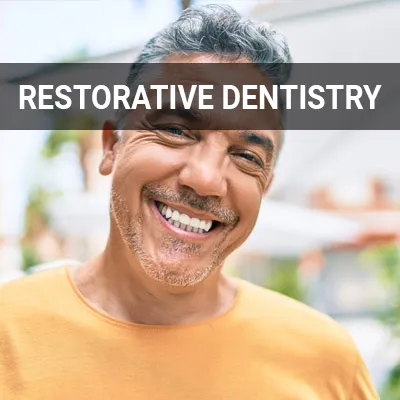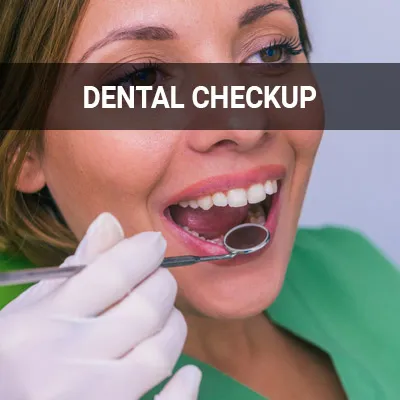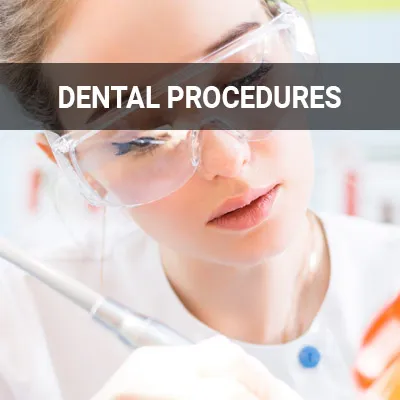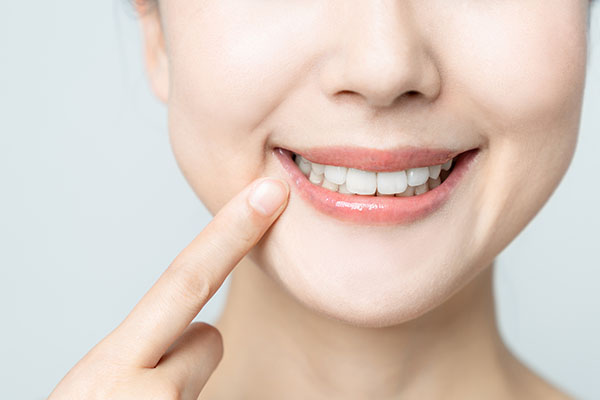Do I Have Sleep Apnea Des Plaines, IL
Sleep apnea, a rare breathing disorder, is treatable through a variety of dental treatments that target the issue at hand. Whether the cause of sleep apnea is a jaw placement or issues in the airways, it is a good idea to receive a dental evaluation. Not only is sleep apnea life-threatening during sleep, it often affects many factors in an individual's life, health, and well-being.
Treatments for sleep apnea are available at Apple Family Dental in Des Plaines and the surrounding area. We can help determine whether your sleep apnea is due to an oral issue and discuss the treatment that would work best. Call us today at (847) 553-4848 to schedule an appointment and learn more.
Understanding Sleep Apnea
Obstructive sleep apnea is a condition where patients have something blocking (or obstructing) part or all of their upper airway in their sleep, forcing the diaphragm and chest muscles to work harder to pull air into the lungs. This condition may cause the patient's breathing to become very shallow or even briefly stop altogether. Eventually, when the patient begins to breathe again, it will be accompanied by a loud gasp, snort, or body jerk.
Many patients are not aware that they have this condition and may think they are only suffering from inadequate sleep. Dentists may be able to recognize and treat the signs of sleep apnea, as these symptoms often take a toll on the mouth and jaw.
“Obstructive sleep apnea is a condition where patients have something blocking (or obstructing) part or all of their upper airway in their sleep, forcing the diaphragm and chest muscles to work harder to pull air into the lungs.”
Sleep Apnea or Sleep Disorder?
A sleeping disorder refers to habits occurring during sleep that affect breathing and overall health. Breathing pattern disorders (BPD), or dysfunctional breathing, are chronic or recurring conditions that cause a distortion in sleep. Sleep apnea is often referred to as both a sleeping disorder and a breathing disorder as these two factors are affected.
Sleep apnea is a serious, life-threatening condition that can greatly reduce oxygen levels, accelerate the heart rate, and increase blood pressure. Oxygen and adequate sleep are essential for proper brain functioning. Therefore, combining low oxygen levels with obstructed sleep can affect multiple parts of the body such as the muscles, mind, mood, and metabolism.
“Sleep apnea is often referred to as both a sleeping disorder and a breathing disorder as these two factors are affected.”
Causes of Sleep Apnea
Many patients are surprised to learn about the link between sleep apnea and dental health. Often, the pauses in breathing associated with sleep apnea are caused by flaccid muscles in the back of the throat, a too-large tongue, or a too-small jaw. Tooth grinding, or bruxism, is the first sign of sleep apnea. This may cause tooth wear and breakage, along with inflamed and receding gums. Apple Family Dental can conduct a thorough oral examination to determine whether or not a patient has sleep apnea.
“Many patients are surprised to learn about the link between sleep apnea and dental health.”
Check out what others are saying about our dental services on Yelp: Do I Have Sleep Apnea in Des Plaines, IL
Symptoms and Signs of Sleep Apnea
The brain has a way of waking us up when there is an inadequate supply of oxygen, but it only lasts for a few seconds, allowing a great amount of airflow to flow through. Therefore, many people may not realize they have sleep apnea. However, it is common that a family member or close friend will recognize that there is an issue as they might snore loudly, suddenly stop breathing, and gasp for air periodically during sleep.
Most symptoms of sleep apnea affect a patient's overall lifestyle, which often signals them that they may have a health condition. Common symptoms of sleep apnea include:
- fatigue
- restless sleep or insomnia
- difficulty concentrating
- waking up several times a night to urinate
- awakening with a dry mouth or sore throat
- headaches
- irritability
- heartburn
- decreased libido and erectile dysfunction
“Most symptoms of sleep apnea affect a patient’s overall lifestyle, which often signals them that they may have a health condition.”
Questions Answered on This Page
Q. Is sleep apnea a sleeping disorder?
Q. What are the symptoms and signs of sleep apnea?
Q. What treatments are available for sleep apnea?
People Also Ask
Q. What additional treatments are available at a general dentist?
Q. What are the benefits of an FSA?
Q. What happens during a direct dental restoration?
Q. Do FSAs cover dental treatments?
Treating and Managing Sleep Apnea
Sleep apnea may be a temporary condition resulting from a poor health habit, such as smoking, excessive eating, and alcohol or drug abuse. These can be treated by reducing or eliminating these habits and doing a few breathing exercises every day to expand the airways and increase airflow. However, sleep apnea is often caused by factors out of our control and must be treated as soon as possible to prevent other serious health conditions.
Treatments for sleep apnea include Continuous Positive Airway Pressure (CPAP) machines, oral appliances, surgery, upper airway stimulation (UAS), and medication. CPAP machines deliver continuous oxygen flow via a mask during sleep. Oral appliances are custom-made devices a dentist creates to keep the airways open. Various surgeries can be performed to solve the root problem, whether it be the sinuses, jaw, tongue, throat, or soft tissues. Upper airway stimulation involves a device connected to the chest that analyzes a person's breathing patterns and sends signals to keep the airways open. Medications may be prescribed when these options are not suitable for a patient for any reason. We will determine the type of treatment depending on the patient's age, type of sleep apnea, and medical conditions that may restrict certain treatments.
“Treatments for sleep apnea include Continuous Positive Airway Pressure (CPAP) machines, oral appliances, surgery, upper airway stimulation (UAS), and medication.”
Frequently Asked Questions
Q. How common is sleep apnea?
A. According to the Sleep Foundation, "Obstructive sleep apnea is estimated to affect between 2-9% of adults in the United States, but many cases are believed to go undiagnosed." Since a person may go a long period of time without realizing that they have sleep apnea, many are unaccounted for.
Q. What is the success rate of sleep apnea treatments?
A. Each case, treatment, and person is different. There could be two patients with the same type of sleep apnea but who have entirely different results. For example, the success rate of most sleep apnea surgeries is 60%, while a CPAP machine may completely cure a person of their condition.
Q. What are the possible complications of untreated sleep apnea?
A. Sleep apnea is a life-threatening condition as oxygen is a pertinent component of overall health, affecting nearly every organ. Going without treatment can result in hypertension, heart disease, fatigue, migraines, type 2 diabetes, metabolic syndrome, cardiovascular disease, memory problems, weight gain, and liver problems.
Q. What are the long-term effects of sleep apnea?
A. Going without treatment for a long period of time can have dire effects on the mind and body. Long-term effects of sleep apnea include, but are not limited to, high blood pressure, stroke, heart failure, heart attacks, and irregular heartbeat. It is important to seek immediate help and treatment when first experiencing symptoms.
Q. What foods should be avoided for patients with sleep apnea?
A. There are not many restrictions on foods and beverages for patients with sleep apnea unless their case is caused by an allergy or other specific factor. Dairy and bananas are known to increase mucus production, which can cause or progress sleep apnea. We will discuss any restrictions if a patient's case requires them.
Dental Terminology
Learn More Today
Treating sleep apnea can improve your overall dental health and quality of life. We at Apple Family Dental may be able to help. Call us today at (847) 553-4848 to schedule an appointment and learn more.
Helpful Related Links
- American Dental Association (ADA). Glossary of Dental Clinical Terms. 2024
- American Academy of Cosmetic Dentistry® (AACD). Home Page. 2024
- WebMD. WebMD’s Oral Care Guide. 2024
About our business and website security
- Apple Family Dental was established in 1994.
- We accept the following payment methods: American Express, Cash, Check, Discover, MasterCard, and Visa
- We serve patients from the following counties: Cook County and Lake County
- We serve patients from the following cities: Des Plaines, Niles, Glenview, Morton Grove, Park Ridge, Mount Prospect, Northbrook, Wheeling, Skokie, Arlington Heights, Buffalo Grove, Schaumburg, and Prospect Heights
- National Provider Identifier Database (1558090167). View NPI Registry Information
- Norton Safe Web. View Details
- Trend Micro Site Safety Center. View Details
Back to top of Do I Have Sleep Apnea











